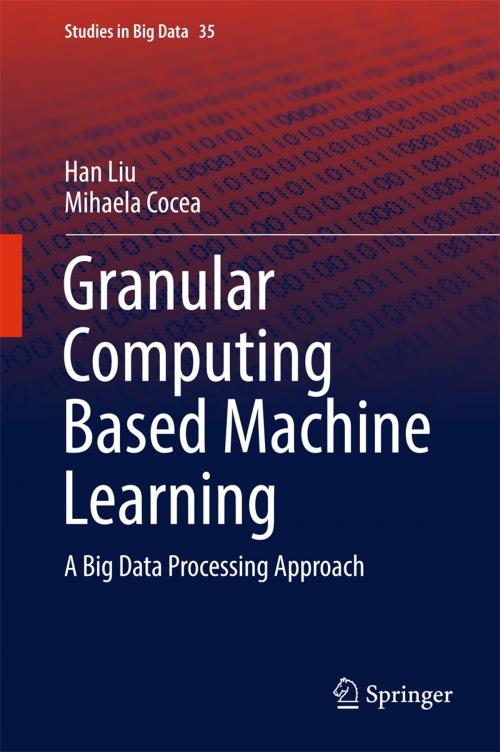Granular Computing Based Machine Learning
A Big Data Processing Approach
Nonfiction, Computers, Advanced Computing, Artificial Intelligence, Database Management, General Computing| Author: | Mihaela Cocea, Han Liu | ISBN: | 9783319700588 |
| Publisher: | Springer International Publishing | Publication: | November 4, 2017 |
| Imprint: | Springer | Language: | English |
| Author: | Mihaela Cocea, Han Liu |
| ISBN: | 9783319700588 |
| Publisher: | Springer International Publishing |
| Publication: | November 4, 2017 |
| Imprint: | Springer |
| Language: | English |
This book explores the significant role of granular computing in advancing machine learning towards in-depth processing of big data. It begins by introducing the main characteristics of big data, i.e., the five Vs—Volume, Velocity, Variety, Veracity and Variability. The book explores granular computing as a response to the fact that learning tasks have become increasingly more complex due to the vast and rapid increase in the size of data, and that traditional machine learning has proven too shallow to adequately deal with big data.
Some popular types of traditional machine learning are presented in terms of their key features and limitations in the context of big data. Further, the book discusses why granular-computing-based machine learning is called for, and demonstrates how granular computing concepts can be used in different ways to advance machine learning for big data processing. Several case studies involving big data are presented by using biomedical data and sentiment data, in order to show the advances in big data processing through the shift from traditional machine learning to granular-computing-based machine learning. Finally, the book stresses the theoretical significance, practical importance, methodological impact and philosophical aspects of granular-computing-based machine learning, and suggests several further directions for advancing machine learning to fit the needs of modern industries.
This book is aimed at PhD students, postdoctoral researchers and academics who are actively involved in fundamental research on machine learning or applied research on data mining and knowledge discovery, sentiment analysis, pattern recognition, image processing, computer vision and big data analytics. It will also benefit a broader audience of researchers and practitioners who are actively engaged in the research and development of intelligent systems.
This book explores the significant role of granular computing in advancing machine learning towards in-depth processing of big data. It begins by introducing the main characteristics of big data, i.e., the five Vs—Volume, Velocity, Variety, Veracity and Variability. The book explores granular computing as a response to the fact that learning tasks have become increasingly more complex due to the vast and rapid increase in the size of data, and that traditional machine learning has proven too shallow to adequately deal with big data.
Some popular types of traditional machine learning are presented in terms of their key features and limitations in the context of big data. Further, the book discusses why granular-computing-based machine learning is called for, and demonstrates how granular computing concepts can be used in different ways to advance machine learning for big data processing. Several case studies involving big data are presented by using biomedical data and sentiment data, in order to show the advances in big data processing through the shift from traditional machine learning to granular-computing-based machine learning. Finally, the book stresses the theoretical significance, practical importance, methodological impact and philosophical aspects of granular-computing-based machine learning, and suggests several further directions for advancing machine learning to fit the needs of modern industries.
This book is aimed at PhD students, postdoctoral researchers and academics who are actively involved in fundamental research on machine learning or applied research on data mining and knowledge discovery, sentiment analysis, pattern recognition, image processing, computer vision and big data analytics. It will also benefit a broader audience of researchers and practitioners who are actively engaged in the research and development of intelligent systems.















